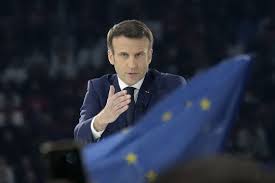
Introduction
Emmanuel Macron, the President of France since May 2017, has had a profound impact on both French domestic policy and international relations. As a young and dynamic leader, he has been at the forefront of major reforms and initiatives that shape contemporary Europe. Understanding Macron’s trajectory is crucial not only for evaluating France’s direction but also for assessing the wider implications for global politics.
Domestic Reforms and Challenges
Macron’s presidency has been marked by ambitious reforms, particularly in the labor market and economic management. His government has enacted changes that aim to stimulate growth, reduce unemployment, and modernize the French economy. However, these reforms have met with mixed reactions; while they have been praised for encouraging entrepreneurship and investment, they have also sparked protests and unrest among citizens concerned about social inequality and cuts to public services.
Recent events have showcased the challenges Macron faces. In the wake of rising inflation and energy prices, his government has had to navigate public discontent. 2023 saw large-scale demonstrations across the nation as workers voiced their frustrations over living conditions. Macron’s response has included promises to adjust policies to balance economic growth with social welfare, reflecting a crucial aspect of his leadership.
Foreign Policy Initiatives
On the international stage, Macron has positioned France as a key player in addressing European integration and global challenges. His vocal support for the European Union, alongside calls for reforms to enhance its functionality, reflects his vision for a united Europe capable of addressing issues such as climate change, security, and trade.
Furthermore, Macron has made headlines with his delicate balancing act regarding international relations, especially in the context of the conflict in Ukraine. His attempts to mediate dialogues with Russia while reinforcing NATO alliances showcase his nuanced approach to diplomacy. His recent summits with fellow EU leaders and Ukraine’s President Volodymyr Zelensky indicate his commitment to a unified European response to the crisis.
Conclusion
Emmanuel Macron continues to shape the trajectory of France and influence international diplomacy in complex and multifaceted ways. Facing significant domestic challenges, he underscores the delicate balance between reform and social equity. Meanwhile, his proactive foreign policy suggests France’s potential to play a key role in global governance. As we move forward, Macron’s leadership will likely remain pivotal, and the outcomes of his policies could resonate across Europe and beyond, impacting future elections, policies, and international relations.



